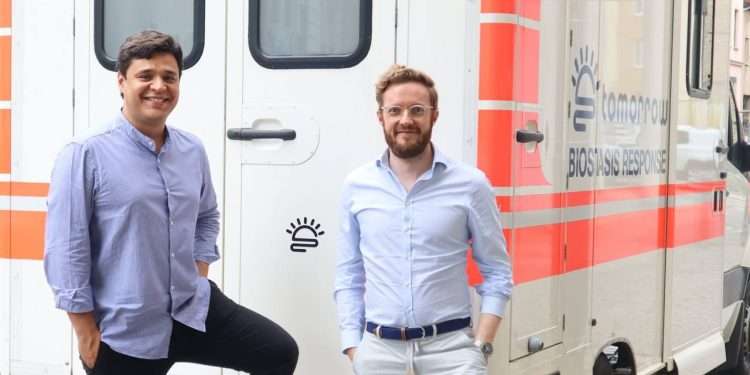Tomorrow Bio, a European start-up based in Berlin, Germany, is pushing the boundaries of science with its focus on cryopreservation, the process of preserving human bodies at extremely low temperatures immediately after death. The hope is that future advancements in medical technology will one day allow for the revival and treatment of the underlying causes of death.
Founded by Dr. Emil Kendziorra, a former cancer researcher and physician, the European Start-up offers a unique service that preserves either the entire body or just the brain of individuals after death. The company’s approach is closely linked to the EuCryropean Biostasis Foundation, a nonprofit organization dedicated to advancing cryonics research. Together, they operate storage facilities across Europe, including in Berlin and Amsterdam, with plans to expand to New York City.
A key feature of Tomorrow Bio’s service is its ‘standby’ model, which ensures that cryoprotection procedures begin immediately after a patient’s death. This is facilitated by specially equipped ambulances designed to carry out the initial stages of the preservation process on-site. Dr. Kendziorra explained the process:
“We use these ambulances for what is called SST, which means Standby, Stabilisation, and Transport. For standby, the team is sent with these medical ambulances wherever the patient is and are on standby should the patient die. They go to the next step, which is stabilisation. That means we try to hold down the patient as soon as possible and use a variety of other medical techniques to stabilize the patient so that no further degradation happens after death. Then, the last part is transporting the patient to one of the cryopreservation facilities where the rest of the procedure can be completed.”
Dr. Kendziorra’s motivation for founding Tomorrow Bio is rooted in his belief that people should have the option to extend their lives beyond death if they choose. He sees cryopreservation as an alternative to traditional burial or cremation, offering at least a possibility of future revival.
While the company has successfully preserved the bodies of deceased individuals and even pets, no revival has yet been achieved, as current technology does not permit it. The process remains speculative, driven by the potential future capabilities of medicine and science. Despite the uncertainty, Tomorrow Bio continues to attract attention for its innovative approach to the concept of life after death.



